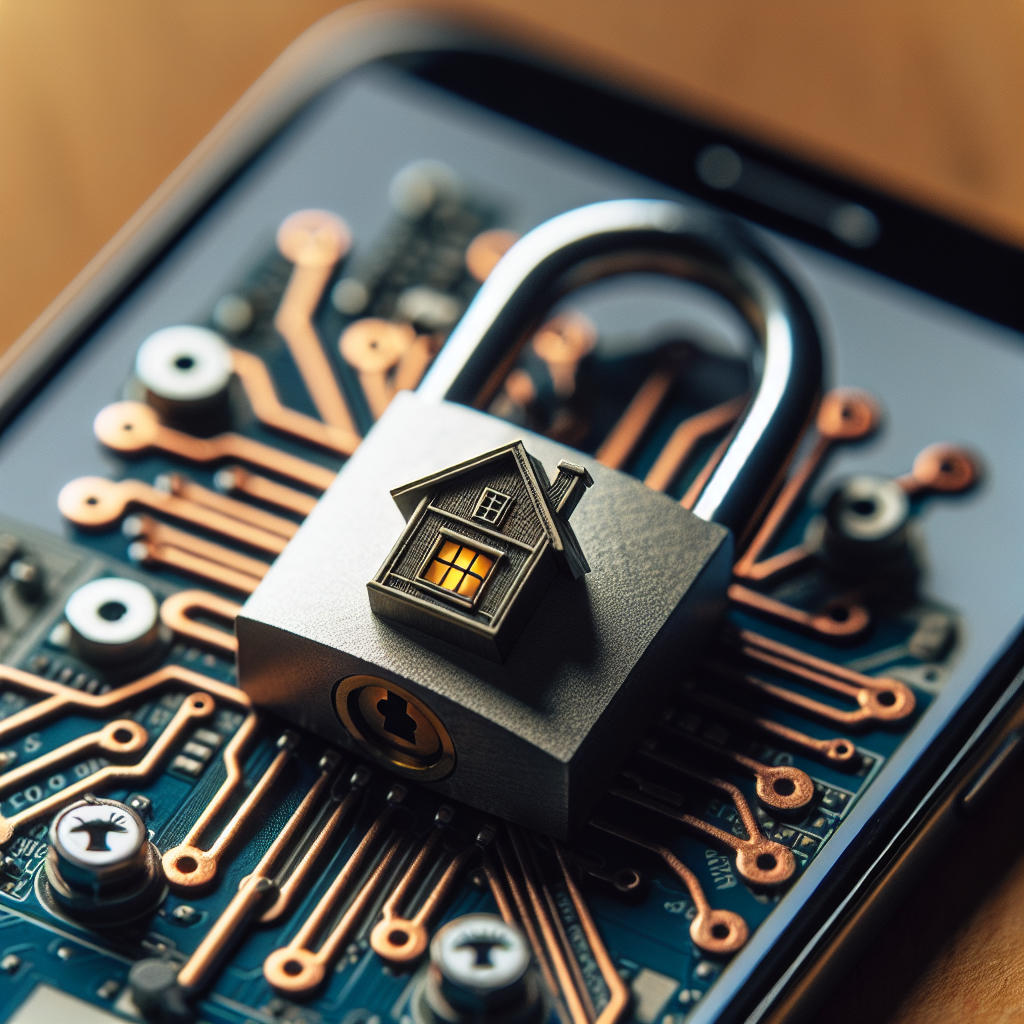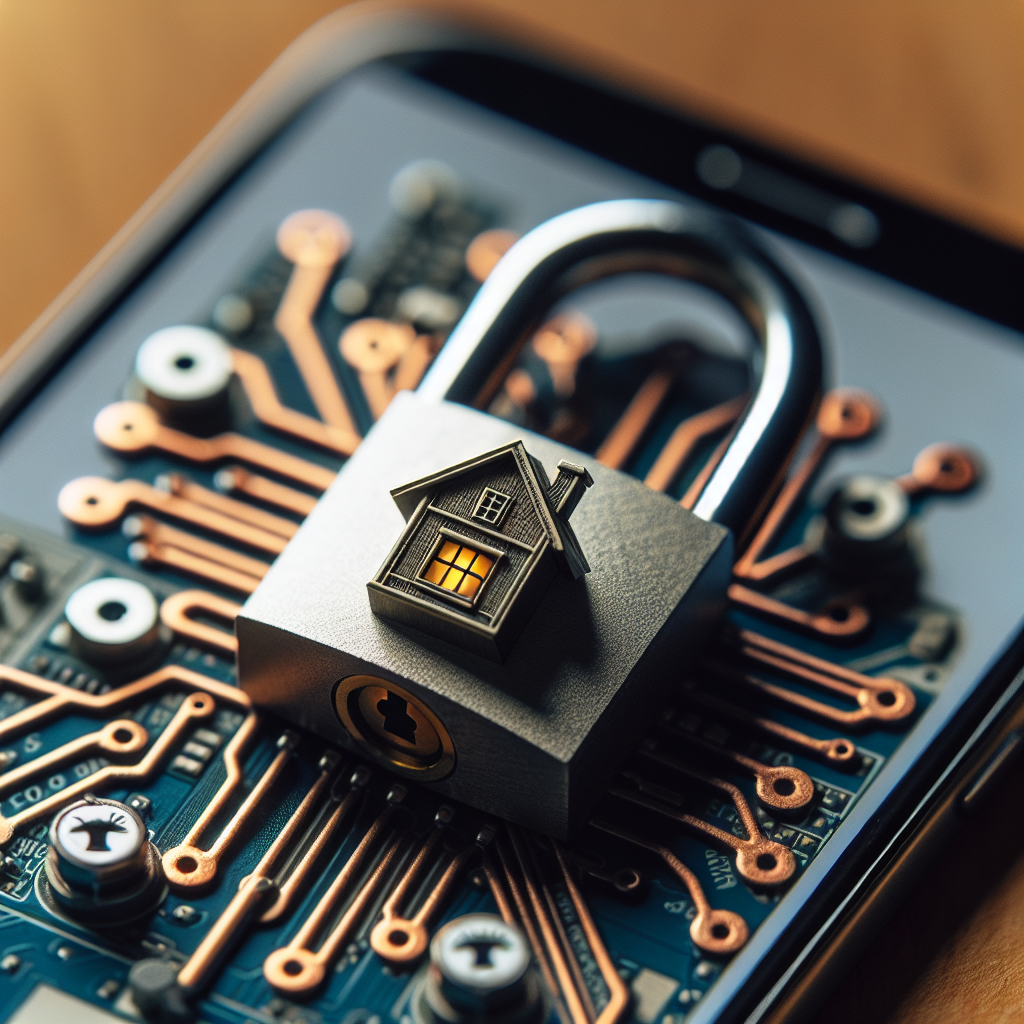Imagine a world where every move you make inside your own home is being recorded and monitored by someone else. From the moment you wake up to the time you go to bed, your every action and conversation are under constant surveillance. While the idea of home surveillance systems may offer a sense of security, it is crucial to recognize the significance of privacy within this context. In this article, we will explore the importance of privacy in home surveillance, highlighting the potential risks and the need for responsible monitoring practices.

The Importance Of Privacy In Home Surveillance
Introduction
Home surveillance systems have become increasingly popular in recent years, offering homeowners a sense of security and peace of mind. However, amidst the benefits that these systems provide, it is essential not to overlook the importance of privacy. Balancing the need for security with the protection of individuals’ rights is crucial to maintain trust, prevent unauthorized access, and avoid discrimination and bias. Additionally, addressing legal and ethical concerns, protecting against hacking and cyber threats, and promoting public safety can all be achieved while respecting privacy. In this comprehensive article, we will explore the various aspects of privacy in home surveillance systems and why it should be a priority to ensure its preservation.
1. Protecting Individuals’ Rights
1.1 The right to privacy
Privacy is a fundamental human right that should be respected and protected in any context, including home surveillance systems. As individuals, we have the inherent right to control and safeguard our personal lives, activities, and information. Home surveillance systems, when not properly managed, can infringe upon this right by constantly monitoring and recording our activities without our consent. It is essential to ensure that individuals’ privacy is not compromised in the pursuit of security.
1.2 Balancing security and privacy
While the importance of security cannot be overlooked, striking a balance between security and privacy is vital. Home surveillance systems can undoubtedly enhance security measures, deterring potential intruders and assisting in investigations. However, it is crucial to implement measures that respect individuals’ privacy, such as incorporating privacy settings that allow homeowners to tailor the level of surveillance according to their comfort level. By finding this equilibrium, we can protect both security and privacy, ensuring a safe and respectful environment within our homes.
2. Preventing Unauthorized Access
2.1 Potential risks of surveillance systems
Home surveillance systems, if not properly secured, can pose significant risks to individuals and their privacy. Unauthorized access to live feeds or stored recordings can lead to sensitive information falling into the wrong hands. Hackers may exploit vulnerabilities within the system, gaining access to personal data and potentially compromising the safety of homeowners. It is crucial to recognize and address these risks to prevent any unauthorized access and protect individuals’ privacy.
2.2 Ensuring encryption and secure storage
To safeguard the privacy of individuals, it is imperative to implement strong encryption protocols for all data transmitted and stored within home surveillance systems. Encryption can significantly reduce the risk of data breaches and unauthorized access by making it extremely difficult for hackers to decipher the information. Additionally, ensuring secure storage for recorded data, such as utilizing encrypted cloud storage or physically secured devices, adds another layer of protection against potential privacy breaches.
2.3 Limiting access to authorized individuals
Controlling access to home surveillance systems is vital to maintain privacy. By limiting access to authorized individuals only, such as homeowners or trusted family members, the risk of unauthorized viewing or sharing of sensitive information can be mitigated. Implementing secure login mechanisms, such as unique usernames and strong passwords, can help ensure that only authorized individuals can access the surveillance system, strengthening privacy measures and reducing the chance of privacy breaches.
3. Maintaining Trust and Confidence
3.1 Transparency and consent
Ensuring transparency and obtaining proper consent from individuals before installing home surveillance systems is crucial for maintaining trust and confidence. Homeowners should be informed about the purpose and extent of surveillance and should have the right to give or withhold consent. Open communication and clear disclosures about how the data collected will be used can help homeowners make informed decisions and establish trust in the surveillance system.
3.2 Minimizing data collection
To protect privacy, it is important to only collect the necessary data required for the intended purpose. Minimizing data collection can help reduce the amount of potentially sensitive information that is stored and decrease the risk of privacy breaches. By adopting a minimalist approach to data collection, homeowners can ensure privacy is maintained while still benefiting from the enhanced security provided by home surveillance systems.
3.3 Safeguarding data from misuse
Once data is collected, it is essential to take steps to safeguard it from misuse. Implementing stringent data protection measures, such as access controls, firewalls, and encryption, can help prevent unauthorized use or sharing of the collected data. Additionally, establishing clear policies and guidelines for data handling within the surveillance system can ensure that individuals’ privacy is respected and that data is used only for its intended purpose.

4. Avoiding Discrimination and Bias
4.1 Impact of surveillance on marginalized communities
Surveillance systems, if not appropriately managed, can disproportionately impact marginalized communities, leading to increased discrimination and bias. It is crucial to be aware of the potential implications and ensure that surveillance systems do not infringe upon the rights or exacerbate existing societal inequalities. Taking steps to address such concerns, such as implementing data anonymization techniques and promoting diverse representation in the development of facial recognition technology, can help prevent discrimination and bias.
4.2 Protecting against bias in facial recognition technology
Facial recognition technology, a common feature in many home surveillance systems, can be susceptible to biases and inaccuracies. These biases can lead to misidentification and false accusations, disproportionately affecting certain racial or ethnic groups. To mitigate these risks, it is essential to develop and test facial recognition technology with diverse datasets and establish clear guidelines to prevent discriminatory outcomes. Regular audits and reviews should be conducted to ensure fairness and accuracy in surveillance systems.
5. Protecting Against Hacking and Cyber Threats
5.1 Securing the surveillance system
Protecting home surveillance systems from hacking and cyber threats is crucial to safeguard privacy. This includes implementing strong network security measures, such as firewalls and intrusion detection systems, to prevent unauthorized access to the system. Additionally, ensuring that the surveillance system itself is regularly updated with the latest security patches and firmware updates can help protect against potential vulnerabilities that hackers may exploit.
5.2 Regular software updates and patches
Regularly updating the software and applying security patches is essential to maintain the integrity and security of home surveillance systems. These updates often contain important bug fixes and security enhancements that can address vulnerabilities and protect against potential cyber threats. Homeowners should be educated on the importance of regularly updating their surveillance system’s software and provided with user-friendly mechanisms to easily apply these updates.
5.3 Educating homeowners about cybersecurity
Educating homeowners about cybersecurity best practices can significantly reduce the risk of privacy breaches in home surveillance systems. Providing resources and guidelines on password security, network security, and safe browsing habits can empower homeowners to take active steps in protecting their privacy. By fostering a security-conscious mindset among homeowners, the overall security and privacy of home surveillance systems can be significantly enhanced.
6. Addressing Legal and Ethical Concerns
6.1 Compliance with privacy regulations
Adhering to privacy regulations is essential to ensure legal compliance and protect individuals’ privacy in home surveillance systems. Laws and regulations vary by jurisdiction, but it is crucial for homeowners to familiarize themselves with the applicable privacy laws and ensure that their surveillance systems meet the required standards. Compliance with regulations, such as obtaining consent before collecting data and providing mechanisms for data subject requests, can demonstrate a commitment to privacy and help build trust with individuals.
6.2 Ethical guidelines for surveillance use
Beyond legal requirements, ethical considerations should also be taken into account when using home surveillance systems. Transparency, consent, and fairness should be guiding principles when implementing and operating surveillance systems. Homeowners should be aware of potential ethical implications and strive to balance the benefits of surveillance with the protection of privacy. Following ethical guidelines can help ensure that surveillance systems are used responsibly and that individuals’ rights are respected.
7. Striking a Balance Between Surveillance and Privacy
7.1 Setting clear boundaries
To maintain privacy while benefiting from home surveillance systems, it is important to set clear boundaries regarding how and when surveillance is conducted. Homeowners should have the ability to customize and define specific areas or spaces that are off-limits to surveillance, such as bedrooms or private areas within the home. Providing homeowners with the necessary tools and features to establish these boundaries can help strike a balance between surveillance and privacy.
7.2 Establishing best practices for data handling
Establishing best practices for data handling is crucial to protect privacy in home surveillance systems. This includes implementing processes for secure data deletion when it is no longer needed, conducting regular audits to ensure data is not retained longer than necessary, and establishing data retention policies that align with legal requirements and privacy principles. By adopting these best practices, homeowners can ensure that the collection and storage of data within the surveillance system are handled responsibly and in accordance with privacy standards.
8. Promoting Public Safety
8.1 Deterrent effect of home surveillance
One of the key benefits of home surveillance systems is their deterrent effect on potential criminals. The visible presence of cameras can act as a deterrent and reduce the likelihood of crimes being committed in the first place. By promoting public safety through the use of surveillance, homeowners contribute to creating safer neighborhoods and communities, enhancing overall security without compromising privacy.
8.2 Assisting law enforcement investigations
In addition to deterring criminal activity, home surveillance systems can also assist law enforcement agencies in their investigations. In cases where criminal activities do occur, the recorded footage can provide valuable evidence that can help identify perpetrators and lead to their apprehension. By working in collaboration with law enforcement, homeowners can contribute to maintaining public safety while respecting privacy rights.
10. Conclusion
Privacy is of utmost importance in home surveillance systems. It is crucial to protect individuals’ rights, prevent unauthorized access, maintain trust and confidence, avoid discrimination and bias, protect against hacking and cyber threats, address legal and ethical concerns, strike a balance between surveillance and privacy, and promote public safety. By prioritizing privacy and implementing appropriate measures, homeowners can enjoy the benefits of home surveillance systems while ensuring their personal privacy is respected and protected. It is through this comprehensive approach that we can create a secure and privacy-aware environment within our homes.

